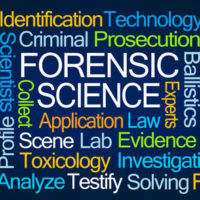Editorial Highlights Continuing Validity Issues Associated with Criminal Forensic Science Methods

In April, the Proceedings of the National Academy of Sciences published an editorial written by a scientist at John Hopkins highlighting that many of the forensic science methods commonly used in criminal cases have never technically been scientifically validated, and, in fact, may have led to a number of unjust verdicts.
The stated purpose of the editorial was to inspire scientists to keep moving forward in improving the validity of these techniques. It was ultimately a plea to society regarding forensic techniques that have placed people in jail having zero scientific backing.
Insufficient Accuracy and Too Many Uncertainties
Many people do not realize that not only were traditional forensic methods such as bite-marks, fingerprints, footprints, and tire-marks developed by law-enforcement labs outside mainstream scientific culture, but most of these methods continue to be used in spite of insufficient understanding of their accuracy and reliability. While forensic experts are able to claim fiber matches, for example, the uncertainties involved in this “match” itself—i.e. the error rate in a conclusion like this—are impossible to calculate. Once it came along, DNA analysis not only overturned many convictions based on these traditional, less precise methods, but also drew attention to just how overdue these methods were for scientific scrutiny.
Reports & Commissions Make Progress, But Are Ultimately Halted
As a result, in 2009, the National Academy of Sciences issued a report that was sharply critical of contemporary forensic science, noting that no forensic method (except for DNA analysis) had been rigorously shown to demonstrate a connection between evidence and a specific individual or source. The Academy also suggested that an independent panel (i.e. a panel that was not part of the Department of Justice due to the potential for bias) be established in order to reform forensic science and bring it into mainstream scientific culture. This Commission was ultimately established by the Department of Justice and the National Institutes of Standards and Technology (and thus not completely independent), and did reportedly make some progress on the issue, but the Department failed to renew it after the 2016 election.
This most recent report from John Hopkins highlights that the main problem with modern forensic methods is their close, connective origin with law enforcement: Almost all publicly-funded forensic labs are associated with law enforcement, which arguably creates a serious conflict of interest. Given the lack of a Commission to look into the issue, these researchers are hoping that editorials like these will enable the scientific community to keep pushing for reforms; even if that involves simply improving methods in general.
Florida Forensic Science Lawyers
When it comes to criminal defense cases, you want to make sure that you work with a firm that understands and specializes in the use of forensic science in criminal defense. Fundamentally, in order to protect your rights, your own forensic testing must be done so that the case does not fall back on what the police or prosecutors say about the evidence.
At the Baez Law Firm in Florida, we have been working with combating bogus forensic science in defense of our clients for years. Contact us today to find out how we can help.
Resources:
hub.jhu.edu/2018/04/10/lack-of-science-in-forensic-science/
ncjrs.gov/pdffiles1/nij/grants/228091.pdf
